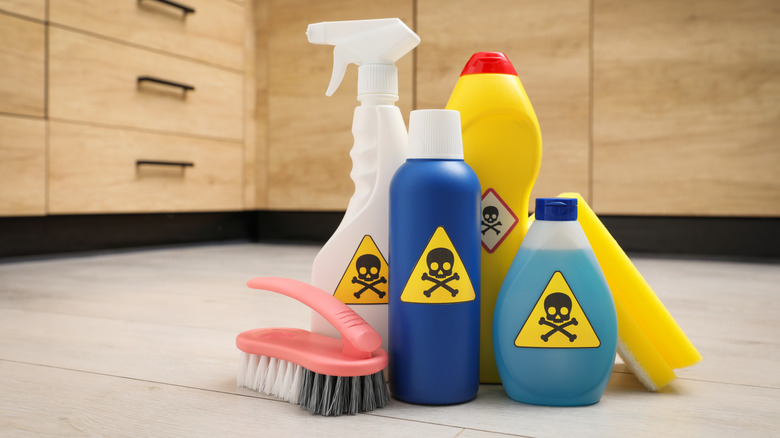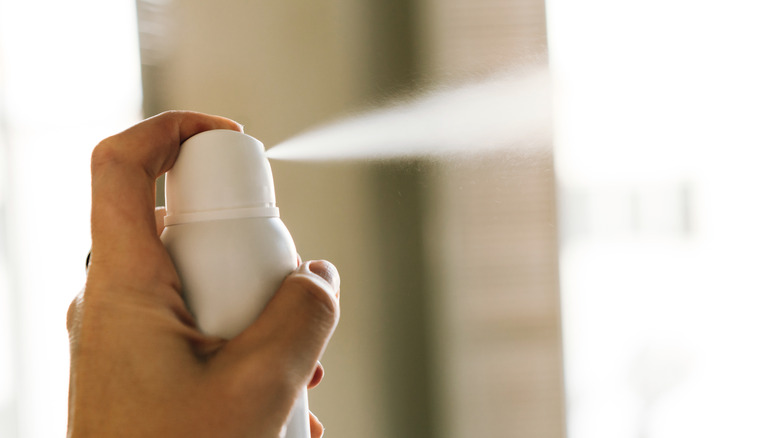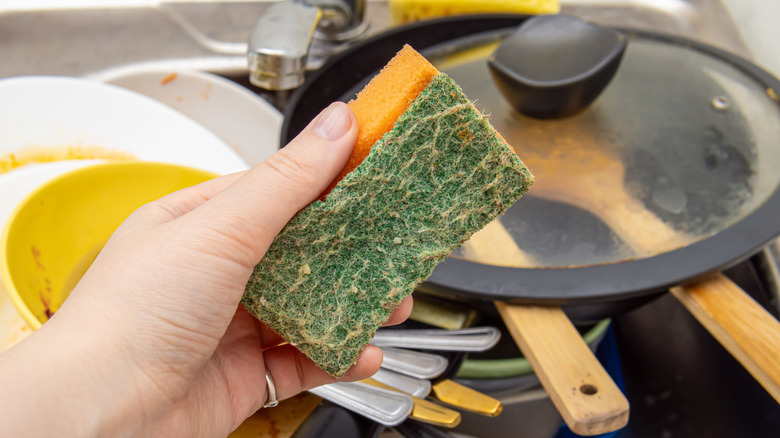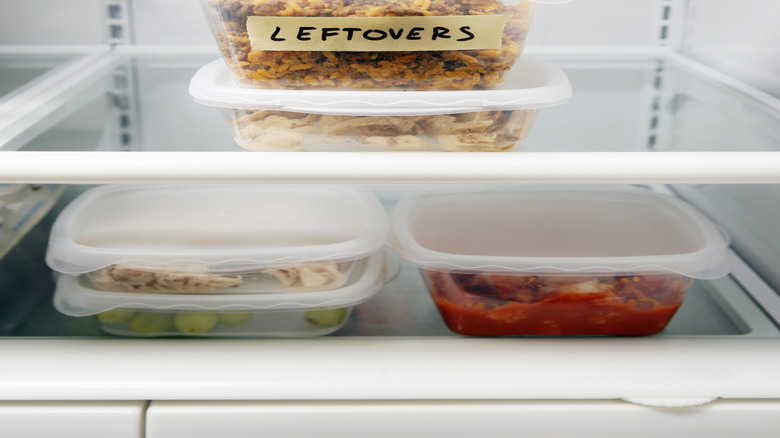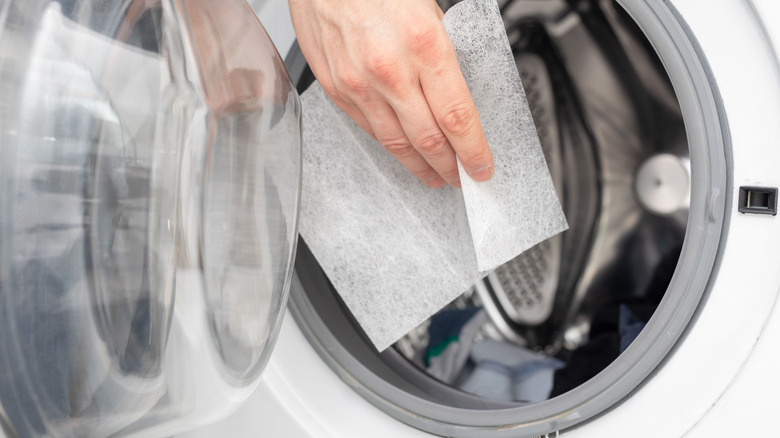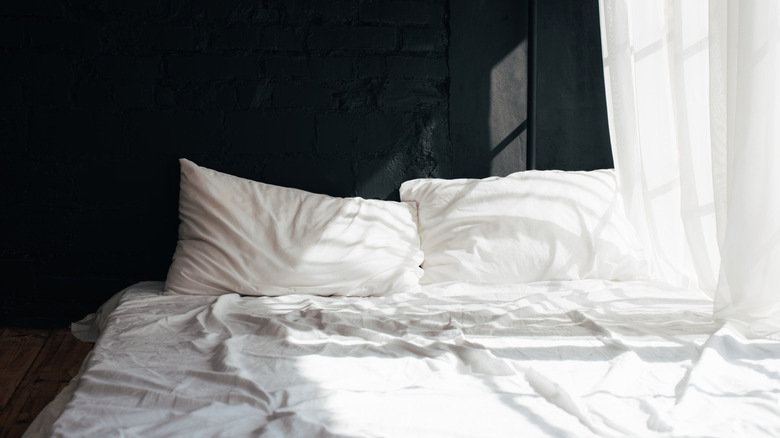5 Household Items That Are Damaging Your Health
Good health is often taken for granted, but once you've dealt with any sort of issues, you're quick to learn just how valuable (and fragile) our health is. There are many things to take into account when trying to lead a healthy lifestyle, yet you may be missing one important factor: your household products. Daily household items are meant to make our lives easier, but could actually be doing the opposite. These hidden health hazards in your home might be responsible for a variety of ailments ranging from skin irritation to cancer.
Everyday household items like disinfectant sprays, Tupperware, sponges, dryer sheets and pillows may often include ingredients that can negatively impact your health. Many of these products are marketed as ways to streamline daily tasks and eliminate germs, but their usefulness doesn't come without risks. These household mainstays are known to harbor harmful chemicals and bacteria. Though it may seem overwhelming, learning about the items you own that may be damaging your health is the first step in finding safer replacements that won't derail your wellbeing.
Are disinfectants just as likely to cause harm as to get rid of germs?
Some household disinfectant products that are used to get rid of germs and bacteria are just as likely to harm your health. Disinfectant sprays can contain chemicals like MIPA-borate, ethanolamine, ammonium hydroxide, and quaternary ammonium compounds (QACs), all of which pose significant health risks. According to a 2023 study, QACs don't typically cause acute issues; however, chronic exposure can lead to respiratory and skin irritation and can cause asthma. Ethanolamine is also known to cause respiratory issues, as well as being highly toxic to aquatic life. Exposure to ammonium hydroxide can cause injuries to the eyes, skin, lungs, and gastrointestinal tract, and MIPA-borate has ties to developmental and reproductive issues.
Similar to other household items, some disinfectant brands are safer than others. One of the worst offenders is Lysol, which has a handful of products that contain ingredients that cause negative health effects. Their parent company (Reckitt) has recently been fighting to keep its ingredient list hidden from consumers, and it isn't their first run-in with governmental agencies regarding the safety of their products. For disinfectant alternatives that are better for your health, try brands like Seventh Generation, Citra Solv, and Clean Boss. All of these options have high safety ratings through the Environmental Working Group. If you'd really like to take matters into your own hand, consider a DIY household disinfectant recipe.
Sponges absorb more than just water
Sponges are another household offender when it comes to our health. They are often a necessary part of cleaning, but as they soak up water and clean off all that gunk, they're also harboring bacteria like E. coli, salmonella, listeria, and staphylococcus. These bacteria can cause health issues ranging from diarrhea to dangerous infections or even death for susceptible individuals like the elderly or pregnant.
Worried about how you'll clean your dishes if you can't use a sponge? You don't need to throw away your little helper just yet. There are ways to keep their collection of harmful bacteria at bay. Of the multiple ways people often clean sponges, the most effective options are microwaving them for one to two minutes and running them through a dishwasher cycle. A study from the USDA Agricultural Research Service found that microwaving kills 99.99999% of bacteria, while a dishwasher cycle kills 99.99998%. If you'd rather not clean your sponges, replace them every week to avoid any health concerns.
Plastic containers: friend or foe?
Plastic containers are perfect for food storage, can work great to keep fruits and veggies lasting longer, and are super convenient for leftovers. However, next time you go to heat up some leftovers, you should consider the toxins you're adding to your food. Plastics from these containers are another culprit of hidden health dangers in your home.
Phthalates, BPA, and those nasty PFAS forever chemicals are all found in plastics. Phthalates and BPA have chemical structures similar enough to estrogen that their presence in the human body can prevent production of T3, cause changes in the thyroid hormone, and more, according to California State University Northridge. They have both been linked to certain cancers, as well as weight gain, neurochemical changes, and diabetes.
As with many of these other products, even ones marketed as safe or toxin-free can still be of concern. Some containers marked BPA free now use BPS. BPS can lower levels of serotonin, an important chemical in our bodies that can affect things like our moods and sleep, and has shown correlation to health issues like breast cancer and diabetes according to the Nutrients scientific journal. To avoid these harmful chemicals released by plastic food containers, choose glass options instead.
Dryer sheets smell good, but could be a secret health attacker
Dryer sheets are another unexpected household item that can contain toxins . Fragrant dryer sheets are meant to help keep your laundry smelling fresh and feeling soft, but some may have ingredients called volatile organic compounds (VOCs) that cause health problems. Volatile organic compounds are gases that come from solids or liquids, and the Environmental Protection Agency links them to serious issues like irritation to the eyes, ears, and throat, nausea and headaches, as well as more concerning health problems like cancer both in humans and animals.
What's tricky about this household item is companies aren't required to list all of their ingredients on their box, some don't even list any at all. So, how do we know how toxic they may be? Instead of taking the risk, you can stop wasting money on dryer sheets and try an easy, all-natural DIY instead. You'll get peace of mind without having to give up your soft, fresh smelling laundry.
Potential health hazards from pillows
Perhaps the most unexpected offender on this list are pillows. There's an overwhelming amount of products you could stress about when it comes to your health (the ways toxic chemicals have intruded upon our lives is staggering) so it may be tempting to just toss this idea to the side, but don't! Not having the proper pillow can impact your daily health significantly by causing issues like back and neck pain, as well as disrupting your sleep and interfering with important health devices like CPAPs, according to Harvard Health Publishing.
Chronic pain, like what can be caused by a poor pillow, can have serious effects on your overall quality of life, which could potentially lead to depression, weight gain, and stress. If you've got a health device like a CPAP, a pillow that doesn't allow for the correct sleeping position can shift your mask out of place. This could interruptyour sleep cycle and your airways won't be kept open, reducing your oxygen levels.
Furthermore, a pillow that doesn't provide support can lead to continuous waking and sleep deprivation. Poor sleep can negatively affect your moods and brain functioning. A good night's rest is necessary for your body's regeneration as well as mood management. To ensure your pillow doesn't interfere with the sleep you need, choose one that keeps the natural alignment of your neck and spine and be sure to replace it every year.
